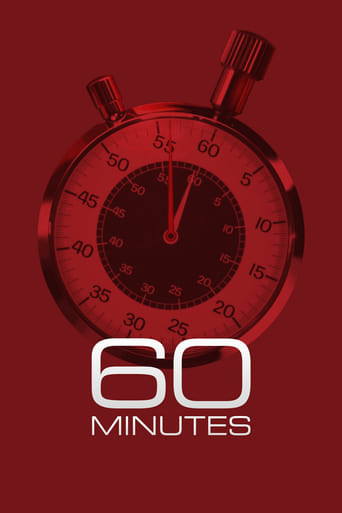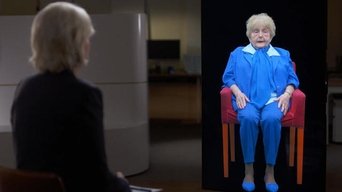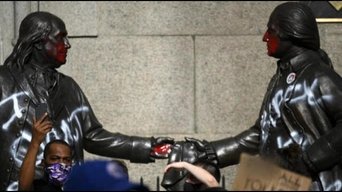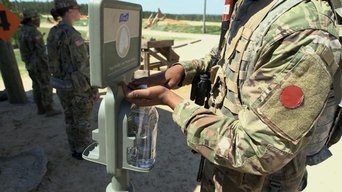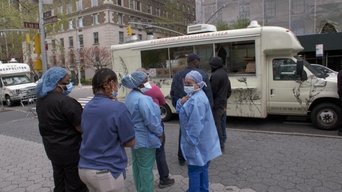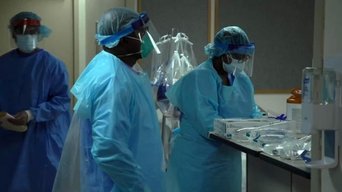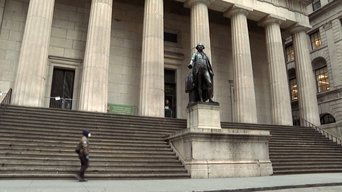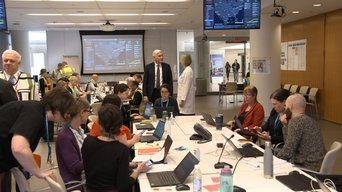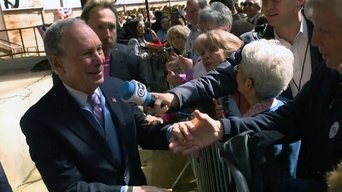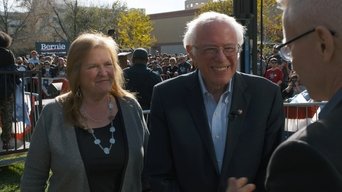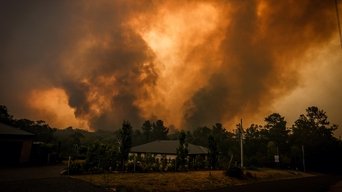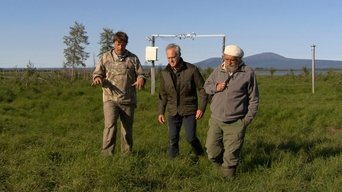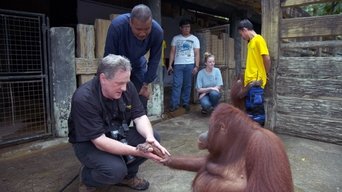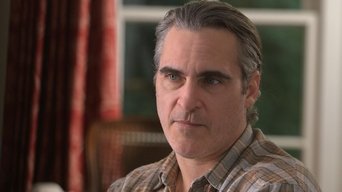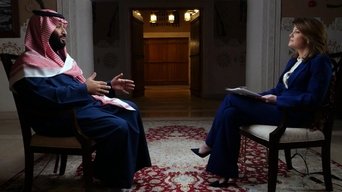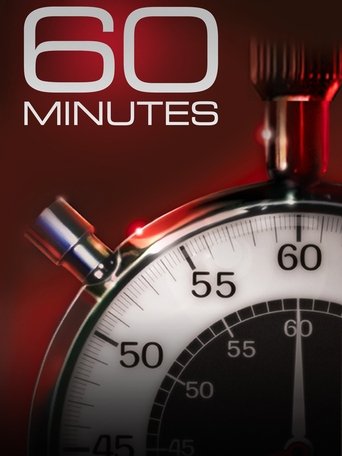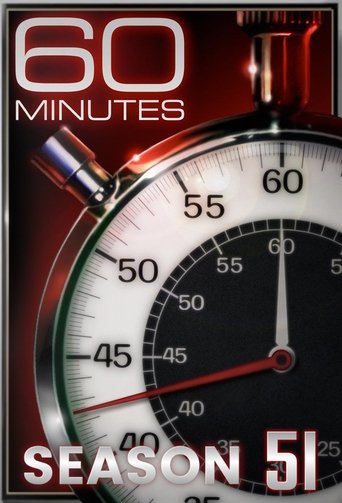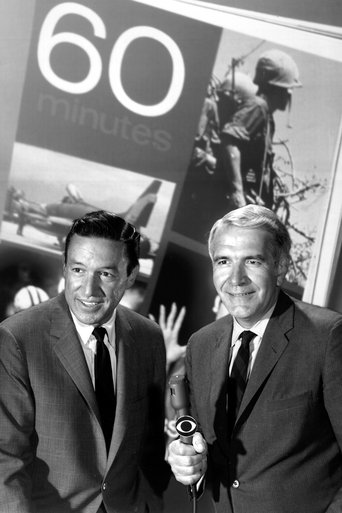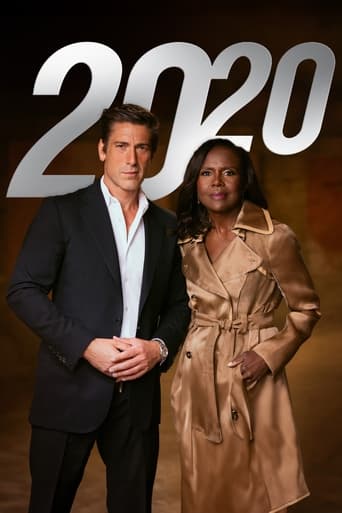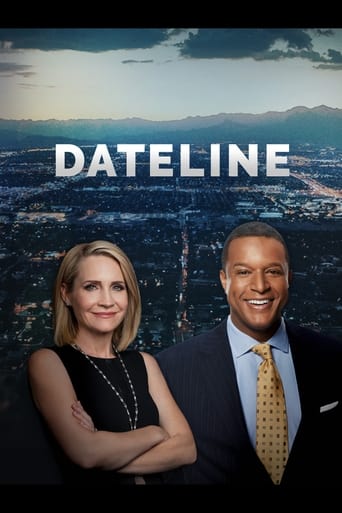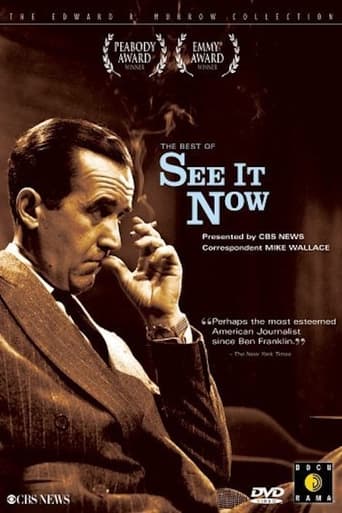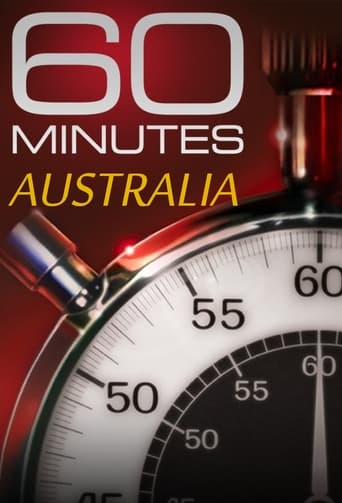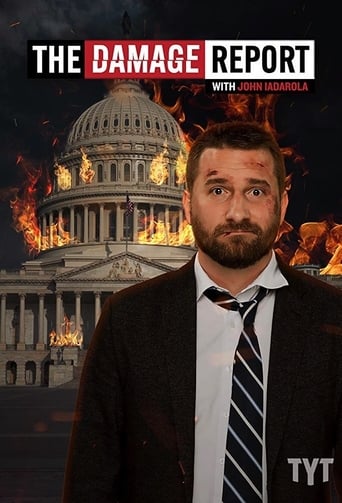60 Minutes Season 52
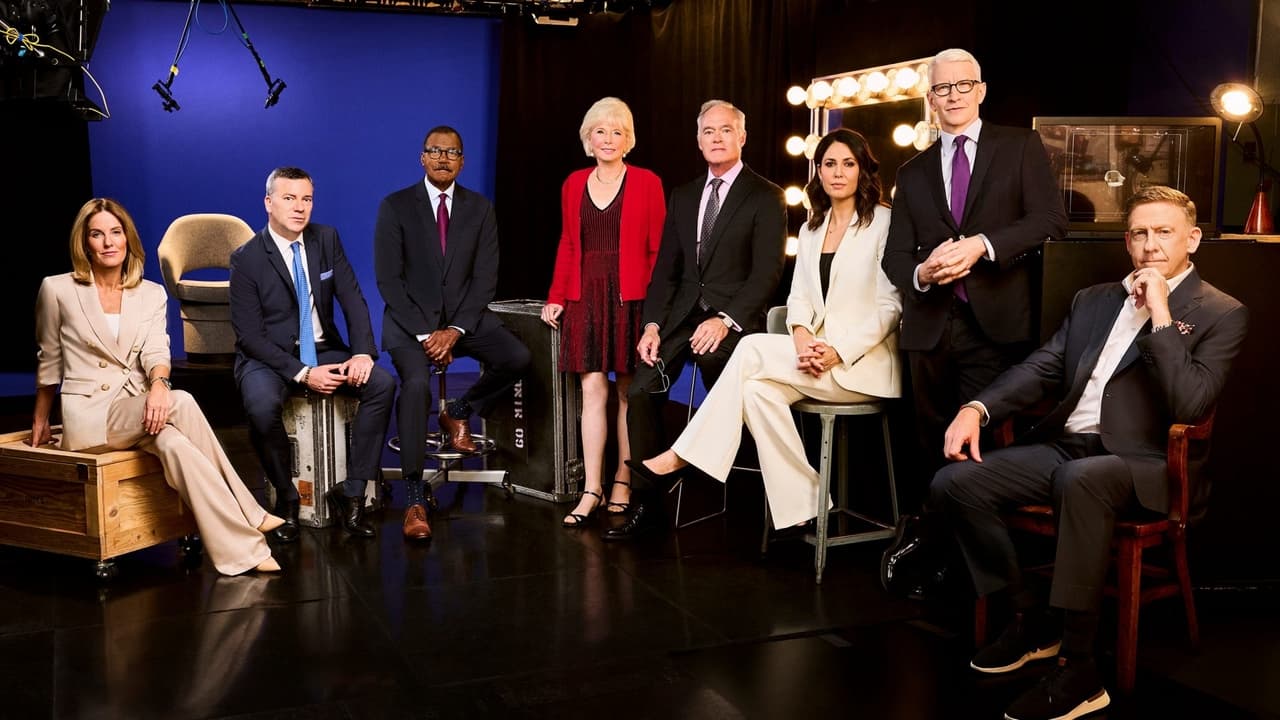
America's popular television News magazine in which an ever changing team of CBS News correspondents contribute segments ranging from hard news coverage to politics to lifestyle and pop culture.
Watch NowWith 30 Day Free Trial!
60 Minutes
1968 / TV-PG


America's popular television News magazine in which an ever changing team of CBS News correspondents contribute segments ranging from hard news coverage to politics to lifestyle and pop culture.
Watch Trailer
60 Minutes Season 52 Full Episode Guide
Donald Trump's conversations with Bob Woodward; Then, a different kind of border crisis: toxic waste in the Tijuana River spilling into California; Joaquin Phoenix: The 60 Minutes interview
Extracting confessions from a serial killer; Then, how MRI scans are showing scientists the physical makeup of our thoughts; And, resurrecting the church destroyed on 9/11.
Scott Pelley reports in the wake of mass shootings on how states have turned to ‘Red Flag’ laws that allow law enforcement to temporarily remove firearms from someone posing a threat. Colorado just passed such a law but residents there are fiercely divided—half the counties have declared themselves Second Amendment sanctuaries, with some sheriffs vowing not to enforce the law; produced by Ashley Velie. 75 years ago, the world was convulsed by a very different crisis than the pandemic we face today – the end of World War II. As Holocaust survivors near the end of their lives, Lesley Stahl reports in a double-length segment that thanks to a new project using artificial intelligence technology, they will be able to keep having conversations and telling their stories forever, produced by Shari Finkelstein. These previously broadcast segments have been updated for this summer edition.
Bill Whitaker reports how Russian operatives disrupted the 2016 elections after members from two Russian military intelligence units have been indicted for hacking into the Democratic Congressional Campaign Committee’s computers and strategically disseminating the data to undermine individual candidates, produced by Graham Messick. Jon Wertheim looks at driverless truck technology, which is already being testing on the open road, and will go live on the nation’s highways sooner than many think, produced by Michael Karzis. Sharyn Alfonsi profiles the comedian/actor Adam Sandler, who after leaving “Saturday Night Live” saw his career take off when he began making films that made billions at the box office, in preparation for his next movie, in which he plays against type as a desperate gambler, produced by John Hamlin and Kara Vaccaro. These previously broadcast segments have been updated for this summer edition.
Anderson Cooper reports on some promising studies claiming that psychedelic drugs can effectively treat people for depression, anxiety or even addictions to tobacco and alcohol, produced by Sarah Koch. Jon Wertheim reports from the island nation of Malta as European Union officials are sounding the alarm about a series of scandals involving allegations of bribery, cronyism and money laundering among top Maltese officials, produced by Michael Gavshon, David M. Levine and Aarthi Rajaraman. Bill Whitaker profiled Shakira, the multiple Grammy Award-winning singer, a few weeks before she performed at the halftime show for Super Bowl LIV as she strived for a perfection she admits is impossible, produced by Marc Lieberman. These previously broadcast segments have been updated for summer viewing.
Bill Whitaker presents a new double-length segment where Chanel Miller, the sexual assault victim previously known as “Emily Doe,” whose victim impact statement was read by millions before the modern #MeToo movement caught fire, tells her story for the first time. She recounts her ordeal after she was assaulted by a Stanford athlete and describes a judicial process she says victimized her all over again, produced by Graham Messick and Jack Weingart. Scott Pelley reports on the partnership between China and America’s Smithsonian National Zoo that has brought the giant panda back from near extinction. This previously broadcast segment, produced by Nicole Young, has been updated for summer viewing.
Sharyn Alfonsi talks to cannabis producers in California three years after the state legalized adult use who are not seeing the legal market develop as predicted and say regulations and a robust black market are to blame, produced by Guy Campanile. Jon Wertheim reports on a letter written by Christopher Columbus describing his discovery of the Americas which became the world’s first best-seller when it was printed, distributed throughout Europe more than 500 years ago. Now the surviving copies are so rare and valuable that they’re being stolen and replaced with forgeries. Katherine Davis is the producer. Scott Pelley tells the remarkable story of the Ethiopian Orthodox Christmas vigil and the pilgrims that have been trekking to this mysterious holy site for centuries to visit its rock-hewn churches carved out of the African plateau, produced by Nicole Young. These previously broadcast segments have been updated for summer viewing.
Dr. Jon LaPook reports about a successful clinical trial for a gene therapy for sickle cell anemia that may be a cure for the painful, chronic and often deadly disease, produced by Denise Schrier Cetta and Megan Kelty. Lesley Stahl reports from Jordan on how the creators of the legendary children’s show Sesame Street have joined forces with the International Rescue Committee to address the needs of Syrian child refugees by bringing a new gang of Muppets to the Middle East, produced by Shari Finkelstein. Sharyn Alfonsi profiles the blind and truly gifted emerging jazz pianist, Matthew Whitaker, who's wowing audiences all over the world at just 18 years old and continuing to develop his prodigious talent, produced by Katy Textor, Kate Morris and Michael Karzis. These previously broadcast segments have been updated for summer viewing.
Scott Pelley tells the story of a Yazidi woman who survived a genocide. He first met her five years ago in a refugee camp, shortly after she narrowly escaped from ISIS. That woman, Nadia Murad, went on to win the Nobel Peace Prize last year for her efforts to end the use of sexual violence as a weapon of war; produced by Rachael Morehouse. Hungary’s populist government is spending billions to encourage women to have more children to solve its demographic problem. At the same time, it has built fences to keep immigrants out. Critics of the right wing government are outraged, Jon Wertheim reports; produced by Michael Gavshon. Bill Whitaker profiles the Wright family of Southern Utah, a clan sporting nine professional cowboys with five world rodeo titles among them, who live a lifestyle straight out of the old west; produced by Nichole Marks.
Six years ago, a missile brought down Malaysia Flight 17 over eastern Ukraine, killing 298 on board. Next month, four men, three of them Russian, go on trial in a Dutch courtroom. Scott Pelley investigates the evidence and speaks to victims’ relatives and prosecutors; produced by Henry Schuster. Public monuments to the Confederacy have been generating controversy and sometimes violence over what critics consider their racist symbolism. Should they stay or should they be removed? Anderson Cooper examines the national debate; produced by Keith Sharman and Erin Horan. 60 Minutes gets unprecedented access to rehearsals of the modernized vision of an American musical theater classic, West Side Story. Bill Whitaker speaks to the directors and cast; produced by Ruth Streeter.
Five years after the Flint water crisis, there are still long lines for water and new evidence of the long-term health impact on the city’s children, Sharyn Alfonsi reports; produced by Guy Campanile. Leslie Stahl revisits the remarkable story of architect Chris Downey, who lost his sight but found a way to keep working, and believes blindness has made him a better architect; produced by Shari Finkelstein. The world’s #1 tennis player, Rafael Nadal, takes Jon Wertheim back to his hometown on the beautiful Spanish island of Mallorca. But it’s not a vacation, as the court star known as “Rafa” to his fans, practices intensely every morning; produced by Nathalie Sommer.
Americans will vote for president in just a few months, and the pandemic has forced election officials to explore ways to keep the public safe at the polls and offer alternatives to in-person voting. As Bill Whitaker reports, so far, it’s not been an easy task; produced by Marc Lieberman and Ali Rawaf. Sharyn Alfonsi shares the results of a three-month investigation that revealed federal officials failed to immediately stop the distribution of many COVID-19 antibody tests they already knew were flawed, leading to inaccurate data about the spread of the virus; produced by Oriana Zill de Granados. Consumers spend tens of billions of dollars on probiotics that promise to improve health. Dr. Jon LaPook takes a look at the so-called “good bacteria” and whether all the hype is true; produced by Howard L. Rosenberg and Julie Holstein.
Lesley Stahl interviews Minneapolis’ Police Chief Medaria Arradondo as the department still reels from the killing of George Floyd; produced by Sarah Koch. A Bill Whitaker double-length segment investigates pharmaceutical companies’ playbooks to push opioids, and how law enforcement has scrambled to hold their executives accountable for fueling the epidemic; produced by Sam Hornblower.
Universities ready for fall amid coronavirus. Then, uncovering the Greenwood Massacre, nearly a century later. And, the case backlog mounts for a federal appeals board.
More than 6 million people, most of them Jews, died in the Holocaust. The music they wrote as a temporary escape, however, did not, thanks in part to the efforts of an Italian composer and pianist.
Sherrilyn Ifill on why George Floyd's death is a tipping point and how America can move forward; Then, San Antonio businesses continue reopening as Texas sees rise in coronavirus cases; And, Oklahoma child abuse law disproportionately penalizes women.
Until new drugs are found to treat COVID-19, one of the more effective treatments has been plasma therapy. Bill Whitaker reports on how doctors are taking the blood plasma of COVID-19 survivors, and the virus-fighting antibodies in it, to create the life-saving therapy; produced by Michael Karzis, Julie Holstein and Howard L. Rosenberg. Lesley Stahl reports on raw sewage that is entering Southern California’s coast lands and waters from Tijuana, Mexico, just over the border; produced by Shachar Bar-On and Natalie Peel. In the most ambitious Mars rover mission yet, NASA hopes to launch Perseverance this summer to find evidence of ancient life on the “Red Planet,” Anderson Cooper reports; Andy Court produces.
Fed Chair Jerome Powell tells Scott Pelley what the government and the Federal Reserve need to do to weather the unprecedented economic crisis precipitated by the pandemic; produced by Henry Schuster. A top government virologist says he was removed from his crucial role leading a unit fighting the pandemic because he spoke out against the administration’s advocacy of a drug unproven to help COVID patients. Norah O’Donnell talks to whistle-blower Rick Bright in his first television interview; produced by Keith Sharman, Rome Hartman and Adam Verdugo. Jon Wertheim takes a look at some of the possible changes spurred by the coronavirus pandemic’s profound effect on society; produced by Michael Gavshon.
The impact of politics on finding a vaccine for COVID-19; Amazon employees claiming their workplace is unsafe; virtually untraceable guns made at home using legally purchased parts.
Americans unemployed by coronavirus share their stories; Then, small, medium-sized farmers on edge while trade war bailout money goes to some surprising recipients; And, medical workers using own money to keep health care system afloat in rural Texas.
How GM and Ford switched from building vehicles to making medical supplies; Then, using artificial intelligence to track the coronavirus pandemic; And, protecting the U.S. military from coronavirus
Coronavirus dead overwhelming New York City, as hospitals begin testing plasma treatment; Then, the coronavirus effect on America's food supply; And, Inside the Japanese artform of Kabuki
New York's health care workers treating coronavirus describe lack of equipment, infections of colleagues; Then, dealing with the mental health issues brought on by the coronavirus pandemic; And, the resurrection of New York's St. Nicholas Greek Orthodox Church .
Struggling in a coronavirus-ravaged economy; And, Holocaust survivors will be able to share their stories after death thanks to a new project.
Doctors treating coronavirus say they're doing their best, "but it feels like wartime”; Then, Brené Brown on vulnerability and courage; And, false promises for African basketball players
Scientists rush to develop a novel coronavirus vaccine; Then, Fed official uncertain how economy will fare during the coronavirus crisis; And, why Hungary is paying its citizens to start families
Life inside an American coronavirus containment zone; Then, early results from 174 Flint children exposed to lead during water crisis shows 80% of them will require special education services; And, driverless trucks could disrupt the trucking industry as soon as 2021
How U.S. health officials and hospitals are handling the COVID-19 coronavirus; Then, Fiona Hill warns about Russian political meddling; And, the outdoor skating race that brings the Netherlands to a standstill
Michael Bloomberg – The billionaire presidential candidate takes questions about his campaign and his past, which rivals have used against him. Scott Pelley speaks to Michael Bloomberg days before the critical Super Tuesday primaries. The Trial of a Navy SEAL – The Navy SEAL acquitted of murder in the case that became a cause celebre when President Trump intervened on his behalf talks about the events that led to his charges for the first time. David Martin reports. Array of Hope – The Bahamas, reeling from rare Category 5 hurricanes scientists blame on climate change, are embracing solar power and can set an example for the world, says the islands' prime minister. Bill Whitaker reports.
Bernie Sanders – Anderson Cooper profiles the self-described democratic socialist senator from Vermont, who currently leads the polls for the Democratic presidential nomination. 298 Counts of Murder – Six years ago, a missile brought down Malaysia Flight 17 over eastern Ukraine, killing 298 on board. Next month, four men, three of them Russian, go on trial in a Dutch courtroom. Scott Pelley investigates the evidence and speaks to victims' relatives and prosecutors. Vision of Music – Blind and truly gifted, Matthew Whitaker is wowing audiences all over the world at just 18 years old. Sharyn Alfonsi profiles the emerging jazz pianist who continues to develop his prodigious talent.
"A Continent on Fire" looks at the massive, deadly bush fire that is threatening wildlife and people in Australia. "The Server" examines the corruption investigation into Ukraine. "West Side Story" goes behind the scenes at a modernized version of this classic of American musical theater play.
What lies at the bottom of one of the deepest holes ever dug by man? Then, how an Oklahoma woman learned to fly like an eagle in Mongolia. And, Easter Island's famous moai statues slowly fading away.
Frontotemporal dementia: Devastating, prevalent and little understood. Then, bringing back pieces of the Ice Age to combat climate change. And, author John Green on reaching young adults and dealing with mental illness.
Great white sharks are coming nearer U.S. beaches. The once familiar howl of the wolf in the American West has returned to Yellowstone Park and its environs thanks to a careful re-introduction of the animal by the U.S. Park Service. National Geographic photographer Joel Sartore is attempting to photograph every living species in captivity.
Venice is facing an uncertain future as it deals with increasingly higher tides blamed on climate change. Anderson Cooper profiles the Oscar-nominated actor from the controversial film Joker and gets a rare interview with his family. The world's # 1 tennis player, Rafael Nadal, takes Jon Wertheim back to his hometown on the beautiful Spanish island of Mallorca.
Did Jeffrey Epstein kill himself? 60 Minutes investigates; Then, is lack of oversight at farms accelerating the spread of antibiotic-resistant bacteria?; And, the message Shakira hopes to deliver with her Super Bowl performance.
An NIH clinical trial is ushering in a genetic revolution as an innovative type of gene therapy is used to attempt to cure sickle cell anemia; Then, Anderson Cooper reports on how psychedelics could help people with addiction and anxiety; And, one of the top medical schools in the United States goes tuition-free
Anderson Cooper profiles artist Mark Bradford, who tackles complex social and political issues through abstract works; Then, 60 Minutes travels to Italy to meet Chef Massimo Bottura, whose kitchen creations are works of art; And, inside Lalibela, the mysterious holy site visited by 200,000 Ethiopian Christians on their annual pilgrimage.
El Salvador’s President Nayib Bukele on the problems facing his country; Then, uncovering the lost music written by prisoners in concentration camps during the Holocaust
The day when humans will no longer be prone to viruses or genetic diseases is coming. A Palestinian businessman is building a city in the West Bank of Israel that he hopes will be the beginning of a future Palestinian state. His career took off after he left Saturday Night Live, when the comedian/actor began making films that made billions at the box office. Sharyn Alfonsi profiles Adam Sandler for his next movie.
YouTube CEO Susan Wojcicki; how Seattle deals with its homeless crisis; the Ethiopian Orthodox Christmas vigil
Members from two Russian military intelligence units have been indicted for hacking into the Democratic Congressional Campaign Committee's computers. The Salvadoran woman who was the wife and mother of the drowned migrant father and daughter whose image in death captivated the world and framed the crisis at the U.S.-Mexico border. Lesley Stahl reports on the use of functional magnetic resonance imaging and computer analysis to decode the physical makeup of our thoughts.
A standoff over Red Flag gun laws; Then, why is the U.S. on the sidelines in the race for a trove of metals sitting on ocean floor; And, Sesame and the IRC Join Forces to Help Syrian Refugee Children
Jamie Dimon, head of America's biggest bank, on politics, his company’s role in the 2008 financial crisis, and his paycheck; Then, a mega-bank's data-driven investment in Detroit; And, Maria Ressa: Reporting in the Philippines
Maria Butina, a woman arrested for conspiracy to act as a foreign agent of the Russian state; Brexit, the United Kingdom's referendum to leave the EU; the best saddle bronc rodeo riders in the world.
Joe Biden defends his son Hunter’s Ukraine dealings, answers for his gaffes; Then, how red tape and black market weed are buzzkills for California’s legal marijuana industry; And, saving the giant panda from extinction.
Recovering from the deadliest anti-Semitic attack in U.S. history; Then, Christine Lagarde tells John Dickerson about the possible signs of a global recession; And, rare, million-dollar copies of a letter written by Christopher Columbus replaced with fakes
“60 Minutes” is on the streets of Hong Kong with pro-democracy demonstrators; then, Nobel laureate Nadia Murad's fight to bring ISIS to court; and, researchers experimenting with psychedelics to treat addiction, depression and anxiety
An update on the Trump impeachment inquiry: Members of Congress weigh in; Then, how a Texas Ranger convinced serial killer Samuel Little to confess to murdering 93 people; And, Land O’Lakes CEO Beth Ford and the changing landscape of America’s farms
Norah O’Donnell interviews Saudi Arabia’s Crown Prince Mohammad bin Salman for his first appearance on American television to discuss the murder of the Washington Post columnist, Jamal Khashoggi. It is also his first interview since his kingdom’s oil facilities were bombed. Next, Scott Pelley has been in the nation’s capital all week observing the raging impeachment inquiry into the presidency of Donald Trump, gathering the facts and people to tell this fascinating story, including House Speaker Nancy Pelosi (D-Calif) and House Minority Leader Kevin McCarthy (R-Calif). Lastly, Bill Whitaker was on the water in New England and Nova Scotia earlier this month, where sightings of great white sharks close to beaches have created what scientists are saying is a mostly unwarranted fear. He reports on the resurgence of perhaps man’s most feared creature: the great white shark. Neither scientist nor beachgoer can deny there are many more of those big fish in the ocean than ever before.
Free Trial Channels
Seasons


